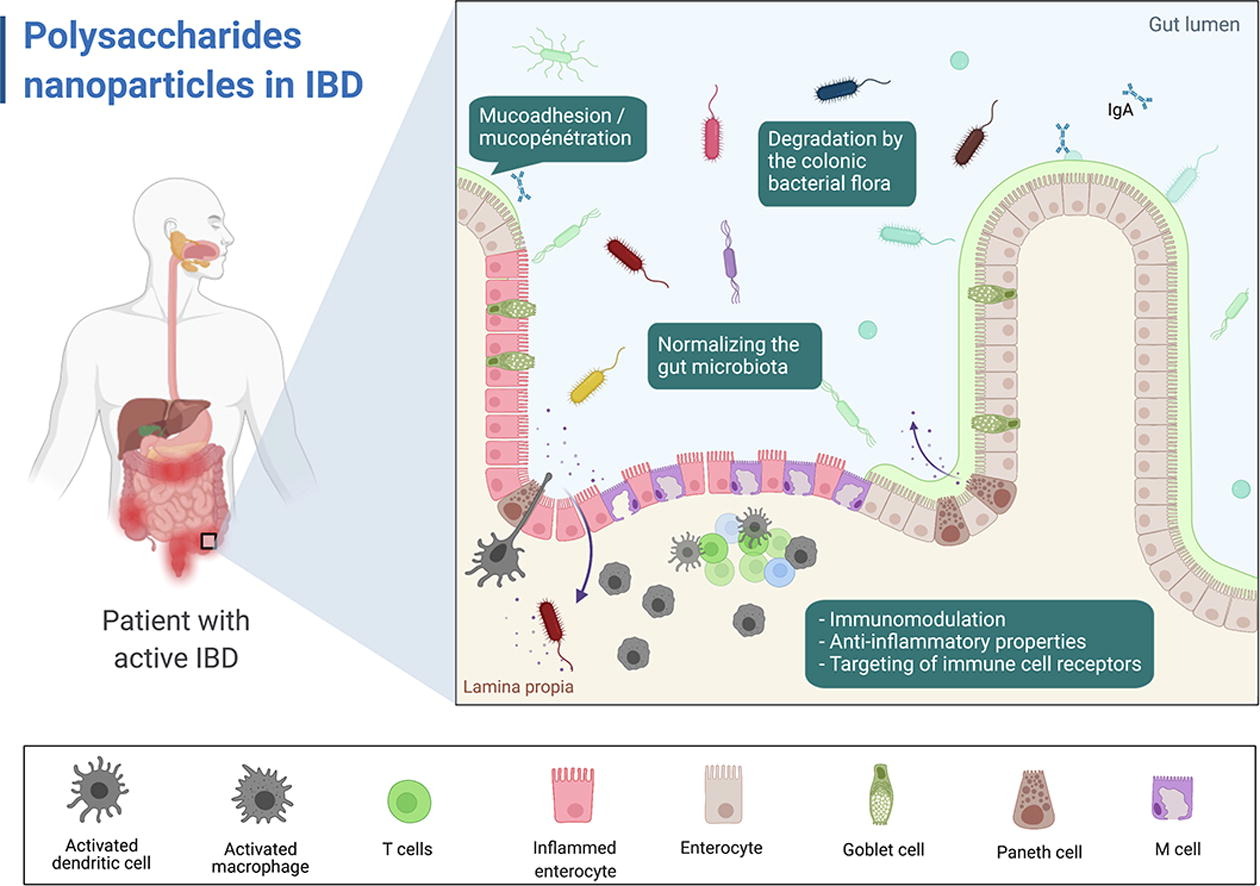Advances in the Treatment of Inflammatory Bowel Disease: Focus on Polysaccharide Nanoparticulate Drug Delivery Systems

The complex pathogenesis of inflammatory bowel disease (IBD) explains the many hurdles for finding an efficient approach to cure it. Nowadays, therapeutic protocols aim to reduce inflammation during the hot phase or maintain remission during the cold phase. Nonetheless, these drugs suffer from severe side effects or poor efficacy due to low bioavailability in the inflamed region of the intestinal tract. New protocols based on antibodies that target proinflammatory cytokines are clinically relevant. However, besides being expensive, their use is associated with a primary nonresponse or a loss of response following a long administration period. Accordingly, many researchers exploited the physiological changes of the mucosal barrier for designing nanoparticulate drug delivery systems to target inflamed tissues. Others exploited biocompatibility and relative affordability of polysaccharides to test their intrinsic anti-inflammatory and healing properties in IBD models. This critical review updates state of the art on advances in IBD treatment. Data on using polysaccharide nanoparticulate drug delivery systems for IBD treatment are reviewed and discussed.
Hicheme Hadji, Kawthar Bouchemal,
Advances in the Treatment of Inflammatory Bowel Disease: Focus on Polysaccharide Nanoparticulate Drug Delivery Systems,
Advanced Drug Delivery Reviews, 2022, 114101, ISSN 0169-409X,
https://doi.org/10.1016/j.addr.2021.114101.

